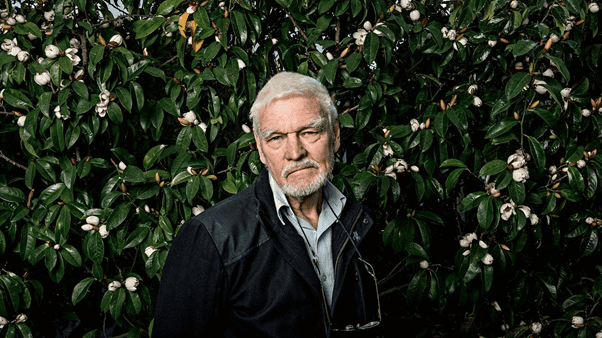History will kindly remember euthanasia advocate Rodney Syme but not those in the medical establishment who sought to derail his quest for justice and fairness, writes GREG BARNS.

GREG BARNS 3 min read October 31, 2021 – 5:32PM
THERE are two paths you can take when you embark on a career such as law or medicine.
You are entrusted with a responsibility to seek justice, fairness and humanity for those who come into your professional orbit.
One road will see you comply with the orthodoxy, lead a comfortable life, and perhaps pick up an accolade or a position of importance as a reward for your longevity or technical ability.
This is the “safe road”, where all are heading in the same direction. The other road is the “hard road” where you see injustice and unfairness and you determine to expose it, push for reform, and run the risk of being resisted by your colleagues, or at the very least have your file marked “Not for promotion”.
This is the more rewarding path and it is one taken by a great Australian and campaigner for the right to a peaceful death, Melbourne doctor Rodney Syme.
Rodney Syme’s life journey, one hopes, will inspire others in professional life to reflect on why they too should not be content with a status quo that too often fails to seek true fairness and enhance humanity.
Rodney Syme died aged 86 a few weeks ago in Melbourne, where he practised as a urologist for many years.
He was born into the Melbourne establishment, with his family linked to the founders of The Age newspaper.
His father was a doctor and his grandfather was Sir George Syme, a brilliant doctor who, in his fifties, ventured into the World War I battlefields to care for the sick and wounded soldiers.
For someone like Rodney Syme, the “safe road” was always available. And if he had stayed on it, he would be celebrated today among friends and colleagues as a good doctor.
But in 1974 Syme decided that the “safe road” was not for him any longer. He watched helplessly as a young patient with cancer spent her final days on this Earth in agonising pain – a human being dying without any sense of dignity.
As Syme described it: “For the next 20 years after that, I thought very, very deeply. I studied the medical literature, the bioethical literature.
“And formulating my views, I began to make public statements. And as a consequence, complete strangers started to approach me.”
So the journey to fight the medical establishment and fierce opponents such as churches and politicians began.
But Syme never wavered, never retreated once his journey on the “hard road” had started.
He assisted hundreds of people to die with dignity, and in the early 2000s said he could hide no more.
He admitted giving a patient Nembutal in 2005. As he said around this time: “I’m not doing it quietly anymore.” He had been, he said, sailing “close to the wind, no doubt about it, but the law is hypocritical and I’m not the only doctor who is operating in this murky terrain. It’s just that I’m prepared to say so publicly.”
In 2008 Syme’s book, A Good Death, was published. It was a confession. Syme spoke about the patients he had assisted to die with dignity.
The decision to go public was Syme’s finest moment in the view of many.
He knew that the medical establishment would shun him and seek to bully him into submission. They did.
In 2016 the medical regulator in Victoria sought to ban him from providing advice to the terminally ill, after Syme spoke about the support he was giving a 71-year-old patient dying of cancer.
The intransigence of the regulator came despite the patient telling it: “The effect of [Syme’s] advice and support has been extremely valuable.
“None of the other doctors who have attended me have provided such benefit and peace of mind. Dr Syme’s care has had a profound palliative effect.”
Fortunately the ban was overturned in late 2016 by an independent tribunal.
Because Rodney Syme took the “hard road”, he is lauded rightly for being one of the forces that has seen right-to-die legislation in Victoria, Tasmania, Western Australia, South Australia and Queensland.
Humanity and decency have prevailed because of this man of intellect and enormous courage.
Rodney Syme’s life should serve as a reminder to those, including this columnist, who practise medicine or law, or to those contemplating entering these worlds.
You can take the “safe road” and walk past inhumanity and injustice, or mouth platitudes while never letting your discomfort get in the way of your ambition for status and plaudits.
Or you can join the “hard road” and, like Rodney Syme and others who have walked it, stand firmly and publicly for reform by exposing the wrongs perpetuated by conservative and often irrational policy settings.
History will remember Rodney Syme, but not those in the medical establishment and elsewhere who sought to derail his quest for justice and fairness.
Because history is interested in the reformers who speak loudly and often.
